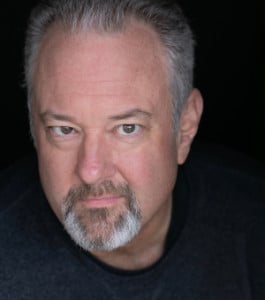Documentary - Northwestern University - Confident Assuring Smooth Narration
Description
Read MoreVocal Characteristics
Language
EnglishVoice Age
Middle Aged (35-54)Accents
North American (General) North American (US Midwest- Chicago, Great Lakes)Transcript
Note: Transcripts are generated using speech recognition software and may contain errors.
Northwestern is one of the most highly regarded research universities in the world, home to top scientists who are making groundbreaking discoveries that create new knowledge and improve human health and wellness. Northwestern's prominence is a scientific institution would not be possible without the unparalleled generosity off the Cyril family, which has been vital to the university's growth. The family's contributions, particularly to the Circle Leadership Fund in the Life Sciences and the Chicago Biomedical Consortium, have propelled Northwestern into the science powerhouse it is today. Over the past 80 years, the several family has made significant gifts toward improving the infrastructure and landscape of Northwestern's Evanston and Chicago campuses. In 1961 as chairman of Northwestern's board of trustees, John G. Cyril helped launch the Link Phil expansion in Evanston. Ultimately, he gave $4 million toward the project, which was completed in 1964 Link film made possible the construction of several buildings that are used to conduct cutting edge scientific research. In 1965 15 story Cyril Building for Research and Education was dedicated on Northwestern's medical school campus. In 1979 the Circle family committed $10 million through the several funds at the Chicago Community Trust to establish the Cyril Leadership Fund in the life Sciences. Every decade since, the family has renewed their support to that fund, which is dedicated to bringing outstanding life science faculty to Northwestern for a total commitment of over $65 million. In 2002 the Searle family helped create the Chicago Biomedical Consortium. Since then, the Cyril Funds at the Chicago Community Trust have invested more than $70 million in the CDC, helping to accelerate scientific discovery and promote the Chicago areas. Biomedical ecosystem There across institutional partnerships The Cyril family's philanthropy through this fund has dramatically enhanced Northwestern's capacity to recruit the nation's most promising life science faculty. Many talented researchers recruited through the Searle Leadership Fund have contributed to important scientific discoveries. For example, Robert Goldman launched the Feinberg School of Medicine's basic research department of Cell and developmental Biology in 1981 and pioneered research related to diseases of early ageing. Richard Morimoto received a $12.6 million grant from the National Institute on Aging in 2018. He has used these funds to lead a five university consortium in studying the role of protein, quality control in human aging and neuro degenerative diseases such as Alzheimer's. Robert Lamb has been a Howard Hughes Medical Institute investigator since 1991. During this time, he has advanced our understanding of the influenza virus as well as viruses that cause diseases including the measles and mumps. Samuel Stoop, a member of the National Academy of Engineering, developed novel materials for use in applications such as new drug delivery systems and tools for tissue regeneration. Guillermo Amir founded the Center for Advanced Regenerative Engineering and is creating strategies to regenerate skin, bladder, blood vessel, part bone and pancreas tissue. In 2019 Katherine Willey was elected to the National Academy of Medicine based on her discoveries about how estrogen effects cognitive areas of the brain and how this differs between the sexes and Talia. Lerner received the National Institutes of Health New Innovator Award in 2019 for her research on how dopamine circuits in the brain regulate reward learning and habit formation, and how individual differences

 Top Talent
Top Talent